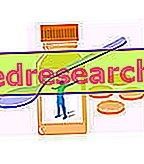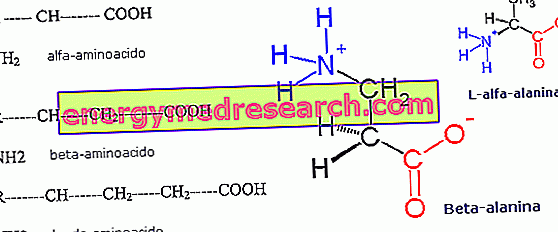Anal itching is an unpleasant pseudo-pathological condition in which the more or less urgent need to scratch is perceived.
Anal itching is often due to morbid-irritative processes localized around the anal orifice, such as candidiasis, anal dermatitis, hemorrhoids, anal fistulas, gonorrhea, oxyuriasis and anal fissures. In addition to the causes just described, anal itching can also depend on factors of a psychological nature (stress) or on poor intimate hygiene or, again, on thyroid disorders. Anal itching is accompanied by secondary symptoms, especially burning, local pain, erythema and anal blood loss.
What to do
- Use soft, uncolored and non-perfumed toilet paper: coloring substances and perfumes can aggravate the anal itching or favor their development
- Regardless of the presence of anal itching, it is always advisable to prefer gentle intimate cleansers at physiological pH
- Thoroughly wash the anal area after sporting activity: sweat can also accentuate or trigger an annoying anal itch, which often spreads even at the genital level
- Always dry the genital and anal area thoroughly with a hair dryer or a soft cotton cloth (in particular, after intimate hygiene)
- Wear cotton underwear: prefer the one without seams and with soft elastic bands so as not to irritate the already irritated genital and anal area
- If possible, in the case of jobs that require you to sit for a long time, lie down on a sponge or cotton pillow to reduce sweating at the genital and anal level
- Regularize the frequency of evacuation: subjects suffering from chronic diarrhea tend to complain of anal itching. Therefore, it is advisable to follow a specific diet in order to keep bowel movements under control. However, anal itching also affects people with chronic constipation: hard stools can indeed damage the anal orifice, causing fissures and itching
- Tell your doctor immediately if you have blood in your stool
- If the sexual partner also complains of anal itching, the doctor's opinion is recommended: in this case, a venereal disease in progress is conceivable
- Wash the anal area with fresh but not cold water: the cold has a mild analgesic effect
- Apply the creams or ointments only after having thoroughly dried the anal and genital area
What NOT to do
- Scratching the anal area: scratches and abrasions can promote the proliferation of pathogens
- Use intimate cleansers or aggressive soaps: these products can irritate the anal mucosa favoring or aggravating the disorder
- Use perfumed intimate creams: perfumed substances can be irritating to the anal mucosa
- Use cold water for intimate hygiene: the consequent spasm of the anal musculature could cause the choking of haemorrhoidal nodules, often associated with anal itching
- Dry the genital and anal parts with rough cloths or towels: choose those in soft sponge to avoid creating further skin lesions
- Apply cortisone or other pharmaceutical formulations without consulting your doctor: a similar attitude can even aggravate the pre-existing itching
- Inordinate intake of laxatives: even the excessive and exaggerated use of laxative products can irritate the genital area, thus favoring itching
- Anal sexual intercourse: in case of anal itching, it is recommended to refrain from similar approaches to avoid aggravating the itching
- Stay with the wet costume for a long time: the humidity created by the wet costume makes the genital and anal area an ideal terrain for the proliferation of bacteria and fungi
What to eat
- A healthy and balanced diet is the basis for a perfect intestinal regularity: a too low or excessive evacuation frequency favors the onset of anal itching.
- Take an adequate amount of fiber, whole grains (eg bran) and vegetables
- Take yoghurt with live lactic ferments or a probiotic in case of prolonged antibiotic therapy (to strengthen the immune system)
- Take lots of fruit and vegetables, as it is rich in antioxidants (vitamin C and E) and fiber
- If anal itching is suspected due to a food allergy, follow an exclusion diet, which is useful to identify the responsible food
What NOT to Eat
- Spicy and spicy foods
- Coffee (we recommend limiting consumption)
- Alcoholic beverages (we recommend limiting consumption)
- Desserts (we recommend limiting their consumption)
- Foods like tomatoes, chocolate, coffee and walnuts can alter the normal frequency of evacuation, so it is possible for anal itching
- Avoid eating hard-to-digest foods, such as dips, fries and fat-rich foods
Natural Cures and Remedies
To speed healing, it is recommended to apply specific creams, ointments, lotions or oils, formulated with active ingredients with a soothing, anti-itching and emollient action:
- Witch hazel ( Hamamelis virginiana L.) → particularly indicated in case of anal itching due to hemorrhoids
- Uncaria tormentosa-based cream → anti-inflammatory and immunostimulant properties
- Sweet almond oil ( Prunus dulcis or Prunus amygdalus ) → antipruritic, soothing and nourishing properties
- Hypericum ( Hypericum perforatum ) → recommended if the anal itching was accompanied by cuts and small abrasions. Hypericum has healing and anti-inflammatory properties
- Chamomile-based ointments ( Matricaria camomilla L.) → anti-inflammatory, soothing properties
- Oat based creams ( Avena sativa ) → anti-reddening and antipruritic properties
- Zinc-based ointments: anti-irritative properties. Often found in association with beeswax, vegetable glycerol and sweet almond oil
Pharmacological care
Considering that anal itching is a symptom that unites many and heterogeneous pathologies, drug treatment always depends on the triggering cause.
- Therapeutic aids to appease the "idiopathic" anal itching (do not bring any remedy on the cause triggering itching):
- Corticosteroids for topical application: Hydrocortisone (eg Plenadren, Locoidon)
- Local anesthetics: Lidocaine (vagisil), Pramoxina (eg Proctofoam HC) or Benzocaine (eg Foille pomata)
- For anal itching due to fungal infections (eg from Candida albicans ):
- Nystatin (eg Mycostatin, Nizoral): oral administration
- Cancidas (eg Caspofungin): to be taken by os
- For anal itching due to contact allergies, we recommend taking antihistamines such as:
- Diphenhydramine (eg. Aliserin, Difeni C FN)
- Hydroxyzine (eg Atarax)
Prevention
- Gently clean the anal area after each defecation. Furthermore, it is recommended to thoroughly wash with water and neutral soap even in the morning after waking up and in the evening before bedtime
- Always wash your hands thoroughly to reduce the risk of infection
- Use a condom to prevent sexually transmitted diseases
- Take specific disinfectant wipes or liquid formulations (eg amuchina, anonet) with you
- Reduce stress: meditation and yoga are important remedies to relax the body and spirit:
- minimize stress = reduce the risk of "side effects" (including anal itching!). Let us remember briefly that anal itching can be triggered or accentuated by extreme stress conditions.
- In the case of anal itching dependent on infections, the sexual partner will be able to follow a specific therapy (even in the absence of symptoms) to prevent recurrence of infections and itching
- If possible, temporarily avoid sports such as cycling and horse riding, which could accentuate the anal itching
Medical treatments
- In general, anal itching is a reversible phenomenon, which resolves spontaneously over a short period or after applying specific creams. In some cases, however, the anal itching conceals more or less serious pathologies, such as
- colorectal cancer. In this case, it is necessary to intervene with a targeted chemo / radiotherapy, possibly associated with a surgical operation aimed at eliminating the tumor.
- anal fissures: if the disorder tends to recur despite the adoption of correct hygienic and behavioral norms, a small surgical procedure is performed of partial resection of the internal anal sphincter, or of covering the fissure with skin flaps taken elsewhere (anoplasty)
- hemorrhoids: the Longo surgical technique (repositioning of prolapsed hemorrhoids) allows the patient to recover more quickly than traditional hemorrhoidectomy (removal of hemorrhoids); the THD technique is indicated in the II degree haemorrhoidal prolapse associated with frequent bleeding
- The "psychopathic" pruritus must be treated with a targeted psychotherapeutic procedure



